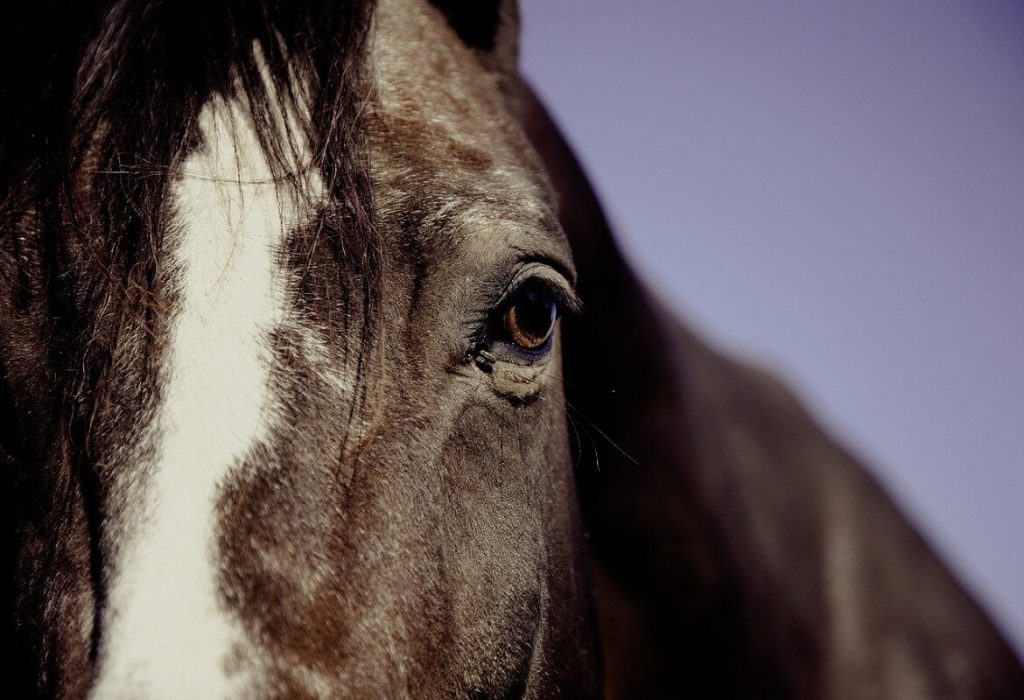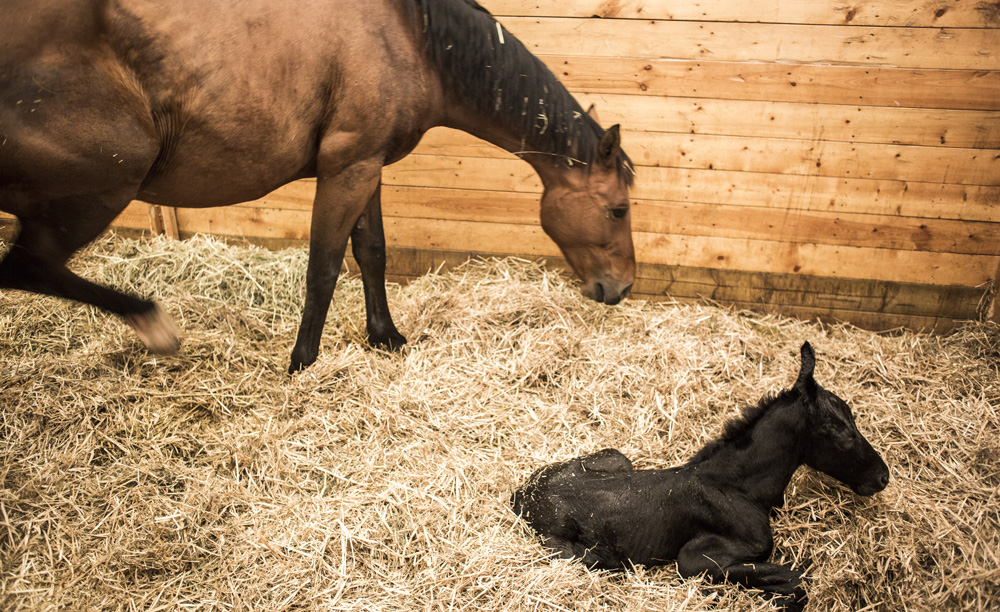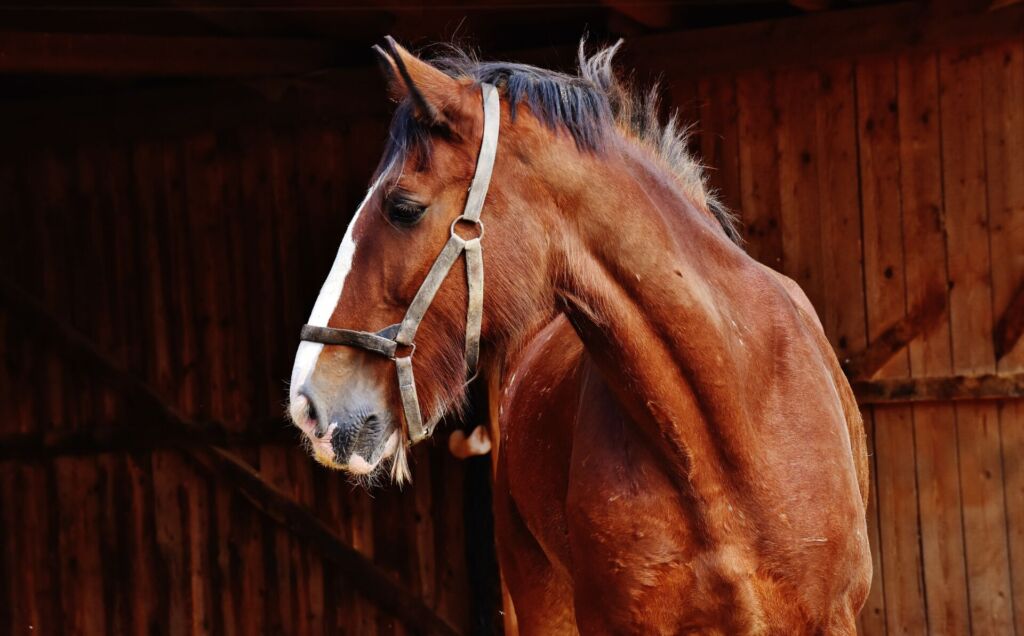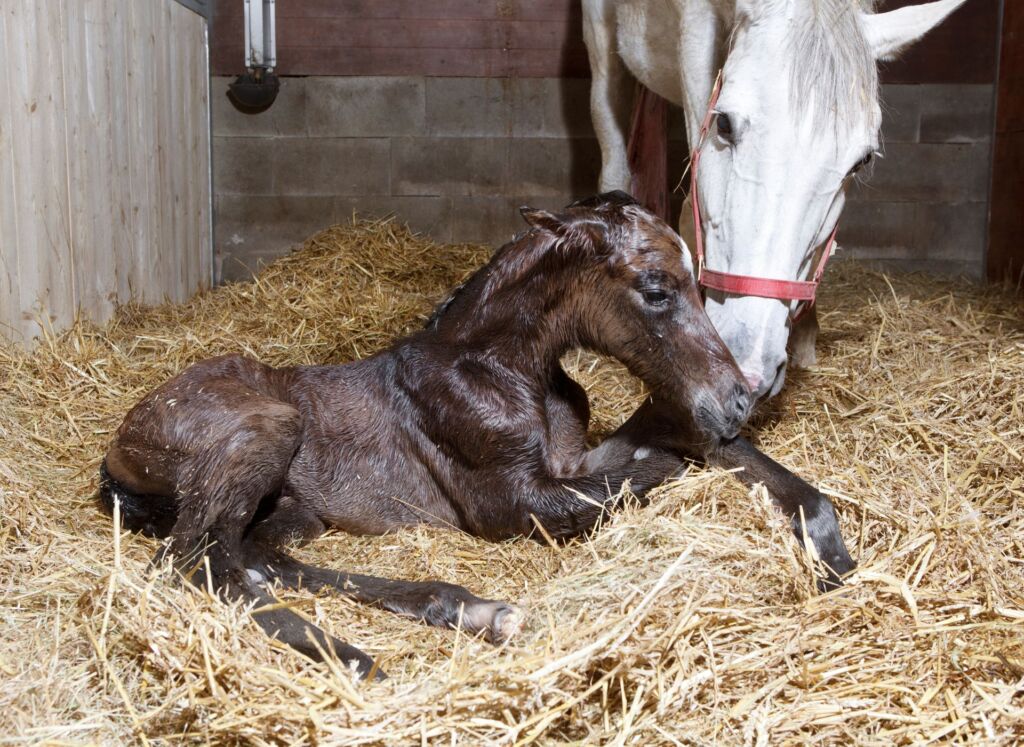Preventing unpleasant episodes during a mare’s pregnancy is not as impossible as it sounds. Fortunately, the problems that can occur during labour and delivery are not so frequent. Nevertheless, it is good to know a few details, to know how to act and to prepare in advance. Let’s take a look at some of the main points to be aware of.
What to know about it
First of all, it is important to know that keeping an eye on your mare in the months leading up to foaling is crucial. In particular, you need to pay attention to the animal’s behaviour and thus understand whether it is different from usual or not. Among the most alarming attitudes are:
- loss of appetite,
- sweating,
- moaning (a sign of pain that will manifest itself in the mare’s tendency to roll on the ground).
This may be a symptom of a serious disease or problem, which may even lead to the death of the animal and its foetus. During the mare’s pregnancy, it is therefore important to assess every aspect and observe the animal constantly.
The importance of ultrasound during the mare’s pregnancy
In order to avoid, prevent and/or resolve any problems in good time, it is essential that the mare undergoes certain veterinary examinations. It is important to have several regular ultrasound examinations (generally four should be done): these will provide you with the necessary information on the evolution of the mare’s pregnancy.
For example, it is useful to know that ultrasound examinations can detect possible infections. One of the most common is so-called placentitis, which must be treated carefully and precisely with antibiotics and whatever else is necessary to prevent the situation from deteriorating.
In addition to indicating any pathology, the ultrasound scan will detect the positioning of the foal inside the mare’s uterus, an essential factor in understanding whether or not foaling will be difficult.
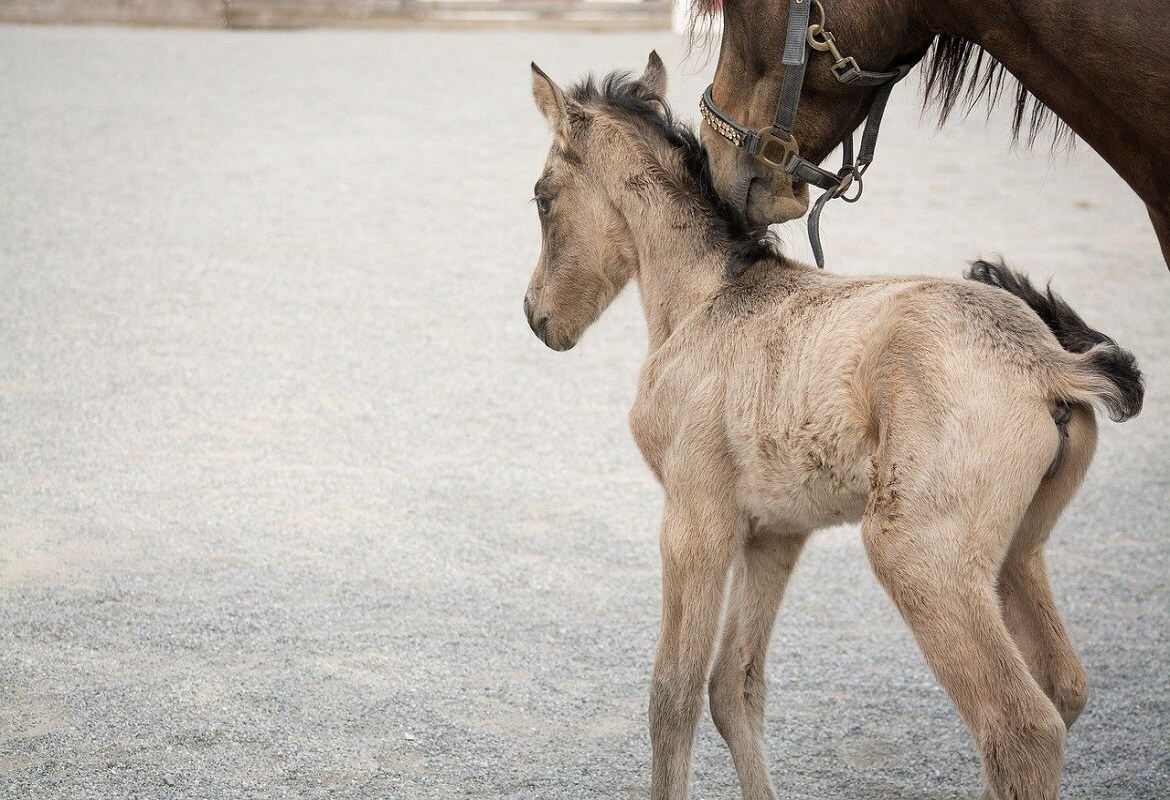
Vaccination
A pregnant mare should be vaccinated to prevent and stop the Herpesvirus, which is very common among these animals. This vaccination should be carried out from the fifth month of gestation. If the animal contracts the virus, a miscarriage may occur. The most common symptoms, although not particularly aggressive, are fever and infection of the respiratory tract.
Apart from administering the vaccine, there is another precaution that should not be ignored during a mare’s pregnancy. This is to avoid her coming into contact with her peers from different stables or with whom she has never interacted.
Pregnancy of the mare: best monitoring
Of course, these are the main precautions that should not be underestimated, because they can make a real difference. One last thing to do is to monitor the mare’s pregnancy, using a special device that can signal the arrival of the imminent foaling.
By being alerted at the start of labour, the farmer can be present at the birth and contact his veterinarian. In this way they can be with the animal at every stage, helping as needed and doing their utmost to avoid complications. But how do you properly monitor a mare’s pregnancy? With a good Foaling Alarm! You can find more information by clicking HERE.



